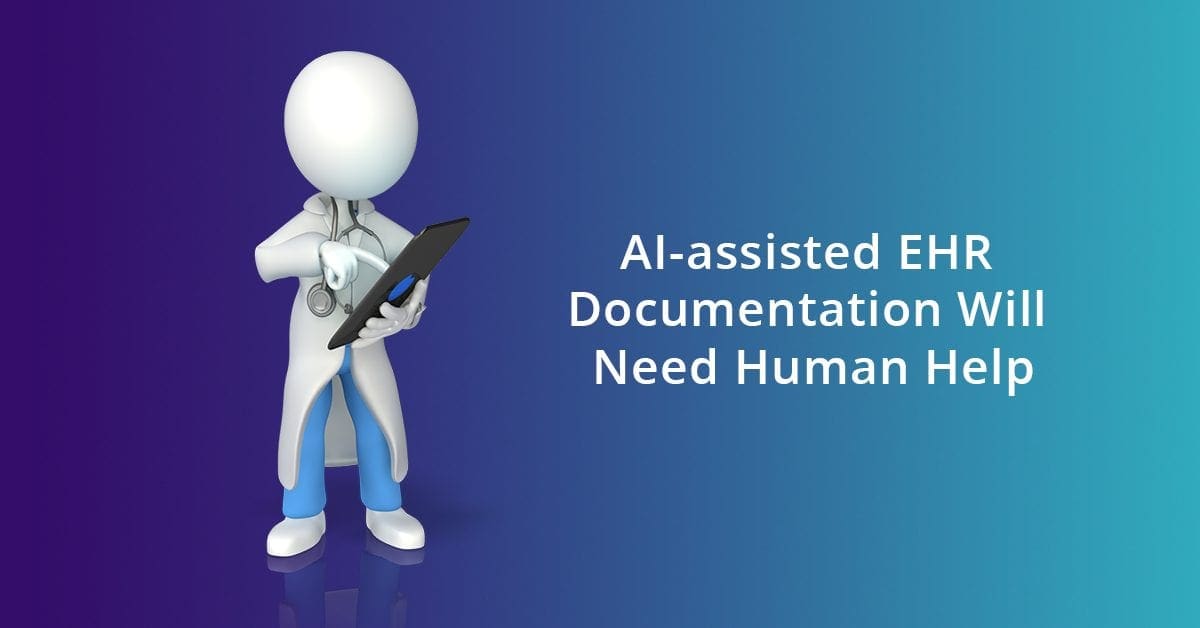Call us toll-free: 800-878-7828 — Monday - Friday — 8AM - 5PM EST


By Kat Jercich for Healthcare IT News
Artificial intelligence technologies are being increasingly relied upon in the healthcare domain, particularly when it comes to decision support, precision medicine, and the improvement of the quality of care. Regarding primary care specifically, AI also represents an opportunity to assist with electronic health record documentation.
A new study published in the Journal of American Medical Informatics Association this week shows that, although AI documentation assistants (or digital scribes) offer great potential in the primary care setting, they will need to be supervised by a human until strong evidence is available for their autonomous potential.
In workshops with primary care doctors, wrote researchers from the Australian Institute of Health Innovation, “There was consensus that consultations of the future would increasingly involve more automated and AI-supported systems. However, there were differing views on how this human-AI collaboration would work, what roles doctors and AI would take, and what tasks could be delegated to AI.”
WHY IT MATTERS
Researchers worked with primary care doctors who use EHRs regularly for documentation purposes to understand their views on future AI documentation assistants. They identified three major themes that emerged from the discussions: professional autonomy, human-AI collaboration and new models of care.
First, the doctors emphasized the importance of their ability to care for patients in their own way with the abilities AI technology provided.
“If they [patients] think that we’re just getting suggestions from a computer, then maybe they can just get suggestions from a computer. I think it becomes more difficult to convince them that our recommendations are more valuable than what they can pick up on the internet,” said one physician.
They noted the need for a bottom-up approach to technology development, with a focus on delivering clear benefits to practice and workflow, and expressed fears around potential legal complications that could stem from working with an AI assistant.
With regard to human-AI collaboration, doctors expressed a variety of viewpoints about what tasks could be delegated to AI. Many believed that an AI system could assist with tasks such as documentation, referrals and other paperwork. Most said that AI systems would lack empathy.
“GPs voiced several concerns, including some potential biases in patient data and system design, the time needed to fix the errors and train the system, challenges of dealing with complex cases, and the auditing of AI,” wrote the researchers.
However, doctors also discussed how AI could help with emerging models of primary care, including preconsultation, mobile health and telehealth.
THE LARGER TREND
The question of reducing EHR-related clinician burnout has loomed large, with vendors and researchers trying to pinpoint major causes – and, in turn, potential solutions.
AI has been raised as one such solution, with several major EHR vendors offering plans for incorporating the technology into their workflows.
But human input remains vital, as the new JAMIA study and other research has noted.
AI could “bring back meaning and purpose in the practice of medicine while providing new levels of efficiency and accuracy,” wrote Stanford researchers in a 2017 Journal of the American Medical Association study. But, they continued, physicians must “proactively guide, oversee, and monitor the adoption of artificial intelligence as a partner in patient care.”
ON THE RECORD
“AI documentation assistants will likely … be integral to the future primary care consultations. However, these technologies will still need to be supervised by a human until strong evidence for reliable autonomous performance is available. Therefore, different human-AI collaboration models will need to be designed and evaluated to ensure patient safety, quality of care, doctor safety, and doctor autonomy,” wrote the Australian Institute for Health Innovation researchers.
